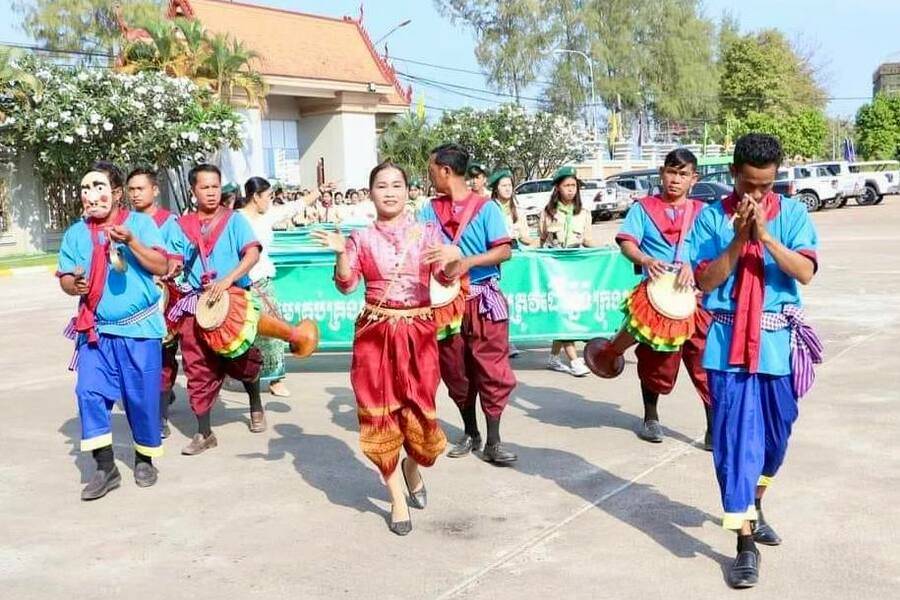Chhay Yam Dance Performance Set For Greeting Foreign Tourists At Airports During Khmer New Year

Phnom Penh, March 18, 2024 --
Samdech Moha Borvor Thipadei Hun Manet, Prime Minister of Cambodia, has asked the Ministry of Tourism to prepare the performance of Chhay Yam Traditional Dance to greet foreign tourists at the airports upon their arrivals during the Khmer New Year celebration.
The Prime Minister asked Minister of Tourism H.E. Sok Soken to consider welcoming international tourists with Chhay Yam dance at the three international airports while presiding over the opening ceremony of the 8th River Festival in Siem Reap provincial city on Mar. 16.
“The performance of Chhay Yam Dance to welcome international tourists is also an attractive image because this dance is fun and relieves tiredness,” he said.
Chhay Yam Traditional Dance, also known as the Drum Dance, is a kind of folk dance the Cambodian people believe that whenever drums are beaten together, they always take away the evils from the village.
The dance with a comic is performed during traditional Khmer festivals to bring happiness, prosperity, and victory back to their whole family. It makes the audience laugh, enjoy, and forget all of their sadness.
The premier also mentioned the e-Arrival system to make it easier for foreigners at the airports.
Cambodia attracted some 5.43 million international tourists in 2023, a sharp increase of 139 percent from 2.27 million in 2022, Ministry of Tourism’s report showed.
Cambodia is well known for its world cultural heritage sites, namely the Angkor Archaeological Park in Siem Reap province, the Preah Vihear Temple and Koh Ker Temple in Preah Vihear province, and the Sambor Prei Kuk Archaeological Site in Kampong Thom province.
Besides, the Kingdom has a 450-kilometre-long pristine coastline stretching across four southwestern provinces of Preah Sihanouk, Kampot, Kep and Koh Kong.
The Tourism Minister has set a target of attracting 7 million foreign tourists by 2025, surpassing the pre-COVID-19 pandemic of 6.6 million in 2019.
